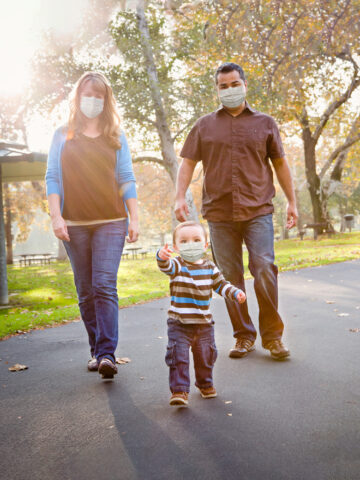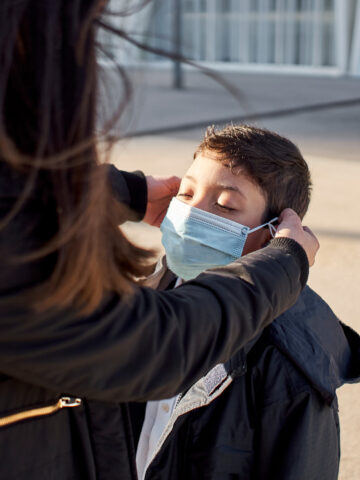While the majority of cases of COVID-19 in children result in no symptoms or mild symptoms, some hospitals have recently reported an increased number of cases of children with a multisystemic inflammatory syndrome that shares many characteristics with Kawasaki disease, an inflammatory disease of childhood that can affect blood vessels. The Centers for Disease Control and Prevention (CDC) has named this new syndrome multisystem inflammatory syndrome in children, or MIS-C.
Research on the apparent link between COVID-19 and MIS-C is limited, but scientists around the country are working to learn more about the correlation. Here, we share information parents should know about MIS-C in this Q&A with Dr. Negar Ashouri, a pediatric infectious disease specialist at CHOC.
MIS-C is a condition where different body parts – such as the heart, lungs, kidneys, brain, skin, eyes or gastrointestinal organs – become inflamed. Many children with MIS-C have previously been diagnosed with COVID-19 or have been exposed to COVID-19.
MIS-C can be serious, but most children have recovered. MIS-C, like Kawasaki disease, can be a very uncomfortable illness because it causes prolonged fever, irritation and inflammation in many tissues of the body. The main concern with MIS-C and Kawasaki disease is heart and blood vessel involvement.
The coronary arteries are the blood vessels that provide the heart muscle with an oxygen-rich blood supply. Conditions that involve inflammation in the heart, such as MIS-C or Kawasaki disease can affect the heart in different ways. They may cause the heart muscle to be irritated and inflamed, affecting the overall function of the heart. Or, it can weaken the wall of one or more of the coronary arteries causing them to bulge or balloon out. Blood clots can form in the ballooned area and possibly block the blood flow through the coronary artery. When this happens, the heart muscle will no longer receive an adequate supply of oxygen-rich (red) blood, and the heart muscle can be damaged.
Not all children will have the same symptoms. Contact your child’s pediatrician if they experience any of the below symptoms. Your pediatrician will let you know if your child needs to be seen in the office or if you need to go to the emergency department.
~ A fever that won’t go away
~ Abdominal pain, diarrhea or vomiting
~ Bloodshot eyes
~ Rash or changes in skin color
Seek emergency care if your child displays any of the following:
~ Trouble breathing
~ Pain or pressure in the chest that does not go away
~ New confusion
~ Inability to wake or stay awake
~ Bluish lips or face
~ Severe abdominal pain
The symptoms of MIS-C may look like other conditions or medical problems. Always consult your child’s health care provider for a diagnosis.
If your child has several of the symptoms listed above, your child’s doctor may explore a possible diagnosis of MIS-C. If your child has not had a confirmed positive case of COVID-19, your pediatrician may arrange for an antibody test, which can indicate previous exposure to COVID-19.
Your physician will start with taking a medical history and performing a physical exam. Tests may include:
~ Blood tests
~ Echocardiogram (echo)
~ Electrocardiogram(ECG)
~ Chest X-ray
~ Abdominal ultrasound
Kawasaki disease and MIS-C are best treated in the hospital by a qualified multidisciplinary group of pediatric specialists. Your child’s care team will determine the exact treatment plan, which will aim to reduce inflammation and minimize long-term damage of the heart. It may include plasma transfusions to reduce inflammation, steroids, aspirin, antibiotics or supportive oxygen.
MIS-C is not contagious.
MIS-C is a new illness and medical professionals are actively studying it to learn more,. Children who have had serious cases of MIS-C should be followed by a multidisciplinary group of specialists who will oversee their care.
This article was updated on May 21, 2020.





